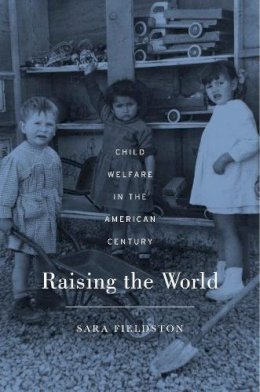15%OFF

Stock image for illustration purposes only - book cover, edition or condition may vary.
Raising the World: Child Welfare in the American Century
Sara Fieldston
€ 51.99
€ 43.97
FREE Delivery in Ireland
Description for Raising the World: Child Welfare in the American Century
Hardcover. Sara Fieldston shows how humanitarian child welfare agencies sponsored by Americans filtered political power through the prism of familial love after World War II. These well-meaning institutions shaped perceptions of the United States as the benevolent parent in a family of nations, and helped to expand American hegemony around the globe. Num Pages: 326 pages. BIC Classification: 1KBB; HBLW; JPS; JPWH. Category: (G) General (US: Trade). Dimension: 167 x 244 x 31. Weight in Grams: 634.
After World War II, American organizations launched efforts to improve the lives of foreign children, from war orphans in Europe and Japan to impoverished youth in the developing world. Providing material aid, education, and emotional support, these programs had a deep humanitarian underpinning. But they were also political projects. Sara Fieldston’s comprehensive account Raising the World shows that the influence of child welfare agencies around the globe contributed to the United States’ expanding hegemony. These organizations filtered American power through the prism of familial love and shaped perceptions of the United States as the benevolent parent in a family of ... Read more
Show LessProduct Details
Publisher
Harvard University Press
Format
Hardback
Publication date
2015
Condition
New
Weight
633g
Number of Pages
328
Place of Publication
Cambridge, Mass, United States
ISBN
9780674368095
SKU
V9780674368095
Shipping Time
Usually ships in 7 to 11 working days
Ref
99-1
About Sara Fieldston
Sara Fieldston is Assistant Professor of History at Seton Hall University.
Reviews for Raising the World: Child Welfare in the American Century
Fieldston should be commended for providing a long overdue synthesis of U.S. voluntary child-saving agencies during the Cold War. Her book is a very successful contextualization of how U.S. charities such as the Christian Children’s Fund, fueled by the desire to care for wartime dependents and participate in the larger narrative of containment through emulation of the U.S., used foster ... Read more
